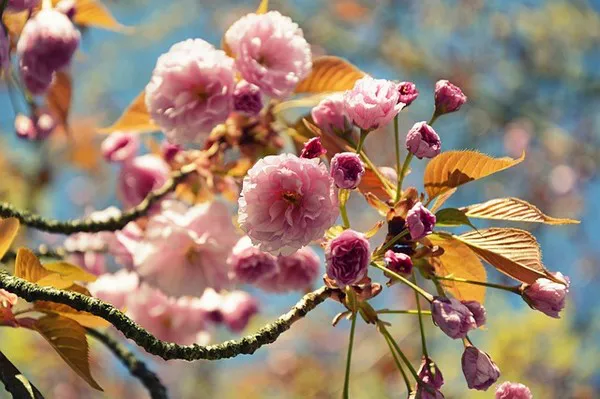The tradition of assigning specific flowers to each month of the year, known as birth flowers, has been cherished for centuries. These blooms are believed to reflect the personalities and characteristics of individuals born in that particular month. For those born in January, the elegant and enduring carnation takes center stage as their birth flower. In this article, we will delve into the history, symbolism, and cultural significance of the January birth flower, the carnation.
Carnation Origins and History
Carnations, scientifically known as Dianthus caryophyllus, have a long and fascinating history that dates back over 2,000 years. The name “carnation” is believed to have originated from the Latin word “carnis,” meaning flesh, due to its pinkish hue. This name is often associated with the color of the flower.
Carnations are native to the Mediterranean region, including Greece and Italy, and they were cultivated and admired by various ancient civilizations, including the Greeks and Romans. They were considered sacred flowers, often used in ceremonial rituals and decorations.
The earliest documented use of carnations can be traced back to ancient Rome, where they were used in garlands, wreaths, and other decorative purposes. They were also highly valued for their fragrant and medicinal properties.
Carnations gained widespread popularity in Europe during the Renaissance era. The flowers became fashionable adornments in clothing, accessories, and even used in culinary creations. Their popularity and significance continued to grow over the centuries, eventually earning a place as January’s official birth flower.
Symbolism of Carnations
Carnations are known for their rich symbolism, and the meanings associated with these exquisite flowers have evolved over time. Here are some of the key symbolic meanings of carnations:
1.Love and Affection: Carnations are often associated with love and affection, making them a popular choice for gifts and bouquets, especially during weddings and anniversaries. Different colored carnations convey varying shades of love, with red symbolizing deep love and admiration, pink representing maternal love, and white signifying pure love and luck.
2. Fascination: The striped or variegated varieties of carnations, often referred to as “painted” or “picotee” carnations, symbolize fascination. These unique and captivating blooms are often given to express admiration for someone’s charm and charisma.
3. Endurance and Longevity: Carnations are known for their remarkable durability and longevity as cut flowers. This quality is often associated with enduring love and lasting commitment, making carnations a popular choice for celebrating milestones such as birthdays and anniversaries.
4. Respect and Admiration: Lighter shades of carnations, such as light red and pink, are often associated with admiration, respect, and gratitude. They are commonly given as tokens of appreciation and recognition.
5. Good Luck: White carnations are considered lucky flowers and are often included in bouquets and arrangements meant to bring good fortune and positive energy.
6. Mother’s Love: Pink carnations, in particular, are closely linked to maternal love and are commonly given on Mother’s Day to express gratitude and affection for mothers and mother figures.
Carnations in Different Cultures
Carnations have played significant roles in various cultures around the world:
Korea: In Korea, carnations are associated with purity and integrity. They are often used in traditional ceremonies and given as gifts to express admiration and good wishes.
Spain: Carnations hold special cultural significance in Spain, where they are commonly used in religious festivals, especially during Semana Santa (Holy Week). Red carnations are associated with love, while white carnations are a symbol of purity.
Poland: Carnations are the national flower of Poland and hold deep cultural and historical importance. They are often worn on Independence Day and other national holidays.
Japan: In Japanese culture, carnations are seen as a symbol of hard work and determination. They are often given to students as a gesture of encouragement and support during exams.
India: Carnations are popular flowers in India and are often used in religious ceremonies and as offerings to deities.
January’s Birth Flower: Carnations in Modern Times
In contemporary society, carnations continue to be cherished for their beauty, fragrance, and versatility. They are frequently used in floral arrangements for a wide range of occasions, from weddings and birthdays to funerals and formal events. As January’s birth flower, carnations hold a special place in the hearts of those born during this month.
Carnations are not only celebrated for their aesthetic appeal but also for their longevity as cut flowers. Their ability to retain their freshness for an extended period makes them a popular choice for floral displays and arrangements. They are also used as a key ingredient in perfumes and cosmetics due to their pleasant fragrance.
Carnation cultivation has evolved over the years, with various hybrid varieties developed to showcase a spectrum of colors, including shades of red, pink, white, and even yellow and green. These vibrant colors have expanded the symbolism and uses of carnations in modern floral design.
Conclusion
Carnations, as January’s birth flower, embody a rich history and symbolism that has endured for centuries. These exquisite blooms represent love, admiration, and endurance and have found their place in various cultures around the world. Whether given as tokens of affection, used in religious ceremonies, or incorporated into elegant floral arrangements, carnations continue to be cherished and admired for their beauty and meaning. So, the next time you encounter a bouquet of carnations, take a moment to appreciate the timeless elegance and significance of January’s birth flower.


